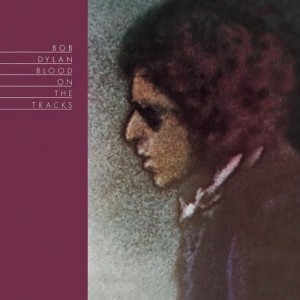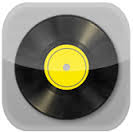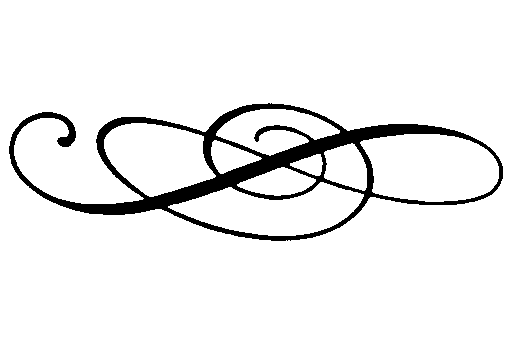

 Bob Dylan
Bob Dylan
| Release date | Label | Producer | Genre | Length | More info |
| 1975.01.20 | Columbia | Bob Dylan | Singer-Songwriters | 51:42 |  
 |
Gruesome title all right, but... whose blood would that be, really?
Background
In the entire history of rock music, I know of no other case where an artist's second creative peak, coming after an alleged period of lull, would be conventionally rated just as high as his first one, if not higher. And, in fact, with 1975 on the horizon, there was fairly little evidence to suggest anything like a second peak. Ever since the motorcycle crash and the period of Woodstock seclusion changed Dylan's whole attitude towards public superstardom, he kept a relatively low profile, and after the warmly and respectfully received transformation on John Wesley Harding, not a single one of his studio albums was hailed as a masterwork beyond earthly criticism - they were quiet, unassuming, often melancholic exercises in country-rock, totally Dylanesque but so devoid of flashiness and full of introversion that it was objectively impossible to put them on the same shelf with Highway 61 Revisited or Blonde On Blonde. Nor did it help him much to go out on the road again: the 1974 tour with The Band was okay, but not even close to the sensational raids on public conscience in 1966, when The Band were still The Hawks.
In reality, Dylan was anything but spent: each of these 1968-74 albums had at least one or two brilliant cases of songwriting (yes, even the much maligned Self Portrait), sometimes more, and overall, the "underhwelming" effect was due to one thing only - these were records where Dylan was not setting out to prove anything. As far as he was concerned, the revolution in popular music was already over, he'd played his diligent part in it, and if you expect that one person can take part in more than one revolution, well, just go out there yourself and you try to revolutionize music twice in a row. But on the other hand, it is also true that Bob may have "over-humbled" himself with these releases, each next one even more quiet, traditional, and unambitious (on the surface) than its predecessor; it is one thing not to strive for uniqueness, bombast, and public attention - and another thing to restrain oneself to the level of "light" ditties, no matter how well-written, tasteful, and (occasionally) catchy they are. Sooner or later, a return to "serious artistry" had to occur, and I am not even sure that it really was the deterioration of his marriage with Sara which brought him back to that desired level of seriousness. More like a general inner call, prompting for a change of direction, finally.
As for the overall context, one should not forget that the early-to-mid-Seventies period was largely owned by "singer-songwriters", who probably held a larger corner of the market than either glam-rockers or prog-rockers, yet somehow Dylan, despite being the acknowledged godfather of all singer-songwriters, had not really made a proper singer-songwriter album yet: even Planet Waves, recorded with The Band one year earlier, although it already had a few songs that could be called spiritual / logical predecessors to Blood On The Tracks (such as ʻDirgeʼ or ʻWedding Songʼ), was still largely a conventional exercise in folk-rock. To make a "proper singer-songwriter album", at this point, would require going in deeply introspective, perhaps even confessional mood, consistently writing songs with a certain world view, laying it all out on the line with your heart on your sleeve - granted, Bob's heart would always be wrapped in waterproof plastic even when pinned to that sleeve, but the man never had a problem with sounding sincere to his fanbase (whether he was being sincere is quite a different matter). Who knows, maybe this was the challenge that he finally found for himself: why not, finally, after all these years, make a normal album, and see where that gets him? So many people, these days, openly confess that Blood On The Tracks is their favorite Dylan record because "this is the one where he is not dicking around with us", or something like that. Do you think he would have been unable to predict that reaction? Do you think he did not have it in his goals to provoke that reaction? Not in a world that was temporarily ruled by James Taylor and Carly Simon, he didn't. Remember this, my friend - man proposes, but Zimmerman disposes!
Some basic factsFrom a commercial standpoint, the record was a success, but so was Planet Waves before it and so would be Desire after it: the public was simply too happy to see Dylan opening his doors and facing the world once again to try and discriminate - as long as they saw that fire burning, that was all that mattered (not coincidentally, sales dropped down once that fire turned to ice with Street Legal). The album's reputation, however, was a different thing: as much as critical opinion coolly respects Planet Waves and Desire, it was Blood On The Tracks that was placed on the pedestal and even now, after all these years, continues to be lauded as either Dylan's best ever album (by critics who insist that the man had shown us his naked soul here) or, at least, as one of Dylan's best albums (by critics who insist that the man's soul always goes clothed, no matter what your eyes and ears tell you), and is regularly pointed out as the best introduction to Dylan if you want to find a relatively accessible entrance into the man's world and not be put off too much by the weirdo vocals or the bizarro lyrics.
For the
defense
Again, what with all the comprehensive reviews of BotT that I have already written over the years, it makes no sense to write another general overview of the album as a whole, so here's a different angle. Dylan, as we all know, is the master of "one-liners" - single phrases, repeated over and over either at the beginning or at the end of each new verse - but I'd say that on Blood On The Tracks, the one-liner thing reaches a kind of peak: 8 out of 10 songs follow that formula, and on the long epics, the repetition borders on becoming excruciating (ʻTangled Up In Blueʼ, ʻShelter From The Stormʼ, etc.). So here is, in a very approximate ranking from good to best, the Top 5 Brain-Drilling Vocal Hooks from Blood On The Tracks, with some pretentious commentary.
(1) "Come in, she said, I'll give ya" (ʻShelter From The Stormʼ). To tell the truth, this is not really that much of a song; all of its melodic content is as simple and traditional as can be, and the sparse arrangement adds little to the pile. But it's all about getting back to the pivot, from wherever you roam - the hookline works like a protective mantra, both during the first half of the song when it's actually "real", and during the second half when it's just a desperate memory. The quiet tone in which these lines are always delivered is particularly important, dividing the verse into the narrator's bold and agitated voice, and the quiet, dignified, stately counteraction of his divine ideal. That's why the song almost never worked well live, by the way, because in a live setting Bob likes to shout these lines out like a stadium-rock chorus - not good.
(2) "Yee gonn' make me lonesome when you go" (ʻYou're Gonna Make Me Lonesome When You Goʼ). This is Dylan tap-dancing on Hank Williams' grave, and, like Hank, he likes to take a formally sad lyrical line and make it sound playful and sarcastic. I mean, the man is a master of contrast, but while usually his contrasts are all locked in his weird lyrical concatenations, here it's largely the contrast between, on one hand, the emotionally devastated lyrics, and on the other, the bouncy tempo and the almost amused intonation of the song, culminating in the sometimes near-giggly delivery of the hookline. If this is a serenade to be sung under the loved one's window, the loved one might feel that he's really playing a ʻDon't Think Twiceʼ trick on her, and resume packing at double speed!
(3) "Tangled, up, in BLUOOOO!" (ʻTangled Up In Blueʼ). This hookline actually evolves over the course of the song, starting out in the first verses more like a clear and concise factual statement and ending up like a wounded howl. This one brings on associations with another lengthy epic with stretched out verses and the root "blue" in the chorus - ʻStuck Inside Of Mobile With The Memphis Blues Againʼ, but the tempo and the chords are more agitated here, and the weight of insecurity and personal problems is felt much more acutely: ʻMobileʼ was grand acting, ʻTangled Upʼ gets us closer to the nervous convulsions of a real human being. Mind you, he's being pissed off here, not depressed: three out of four syllables are heavily stressed, implying frustration, and since each new verse of the song describes a new life situation, that's quite an overload of frustration. At the end of the tune, you should feel sorry for the fellow, and quote him something like Ray Davies' "life is complicated, life is overrated, must alleviate this complicated life".
(4) "Eeeeeee-daaa-deeeuhd weeeeeeind!" (ʻIdiot Windʼ). We all like Angry Dylan, don't we? Very, very soon, he'd become Depressed Dylan, Converted Dylan, and Spineless Dylan, so catch it while it can still be hot. This is one of the few songs here where primary stress falls not on the song title, but on something else - I actually think that the main hookline precedes the chorus, and consists of Dylan sardonically drawling out the last line of each verse: "Sweeeeet ladyyyyyy..." (any sweet lady that has the misfortune to be addressed like that should be ready for at least a Shakespearian retort). But the title still sounds impressive, and I have never been able to figure out why the word "idiot" is extended to something like a yodeling "i-de-diot", but if it helps him make it sound more like a hurled stone, so be it. I guess he just wanted to make good, creative use of the word "idiot", which had probably never been once combined with "wind" in the prior history of mankind (and I'm not even sure, either, that the line "you're an idiot, babe" had ever been previously used by the most misogynistic garage rock scum in the history of pop music). SLAM!
(5) "...simple... twist of fate" (ʻSimple Twist Of Fateʼ). Ah, now this is just beautiful. There's an almost regal hermit stillness to this song (I think that out of all of Bob's classic catalog, this is the one tune that Leonard Cohen could have covered admirably), and the hookline is always about contrasting one brief moment of loudness, in the next-to-last line, with the quietest moment of the last line. People like to sing about fate and doom with gravity and solemnity, but here the fatalism is taken lightly, with the proper cool fully restored at the end of each verse. Whatever you do, you cannot predict every simple twist of fate, so why not just reconcile yourself with this and take it easy. Yes, it's sad, but sadness is the spice of life anyway, quoth Zen master Dylan. I really like how each verse progresses from opening melancholy to midway agitation to final peacefulness. If only it were that easy for all of us...
Of course, there's plenty of honorable mentions too: the pseudo-naive folksy nonchalance of "buckets of rain, buckets of tears...", for instance, or the unusually heavy plaintivess of "if you see her, say hello...", but formally, these hooklines are not brain-drilling (they are not repeated at the beginning of each verse), so we'll have to pass up on them in the final count. But overall, the magic aspect of it all is that somehow, all these repetitive vocal lines and simple-as-heck folksy/bluesy melodies seem so straightforward and even un-creative, and yet, keep them going on for a few minutes and it's like the meaning of life (well, okay, the meaning of somebody's life) is crystallizing right there before your eyes. Mesmerizing minimalism in action.
For the prosecution
For all the unquestionable goodies that Blood On The Tracks has to offer, years and years of relistening have not swerved me from the original assessment - namely, that too many people were too amazed at the idea of Dylan writing lyrics that made sense "all the way", rather than hid occasional pearls in haystacks of verbal chaff, and intuitively felt that the man finally saw the light and tempered his irritating youthful cockiness with well-thought-out maturity. That's all right, says I, but I still refuse to see Dylan primarily as a poet rather than a... okay, if not "musician", then at least a "sound artist", and from that point of view, there is no way that Blood On The Tracks could ravage and disturb me the same way that his 1965-66 records could. Even John Wesley Harding is full of sonic mystery - Blood, in comparison, just seems way too normal. And then, to add insult to injury, there's ʻLily, Rosemary And The Jack Of Heartsʼ, a song that has no place on the album if you want it to look personal and conceptual - and if you don't, what would be so good about it in the first place?...
In general, Blood On The Tracks shares the same basic features with most of the subsequent Dylan albums - simple, derivative, long-winded melodies with repetitive hooks and relatively little care invested in the arrangements (and I know some would spread this judgement to Dylan's entire career, but I would be willing to argue with that quite seriously). In 1975, he got away with it fairly well because the arrangements still sounded fresh and tasteful, his vocals still had plenty of flame and fury, and the lyrics carried plenty of meaning, but the formula worked all too well, and after giving it a few intriguing injections for Desire, he'd rut it soon enough. I did mention the presence of magic, but even so, the internal mechanics of Blood On The Tracks, its cogs and wheels, all of that seems much more visible than whatever it was that drove forward the unique psychedelic train of 1965-66. Some people prefer it this way - they get nervous when they can't have the cogs in plain sight - but I prefer my magic to be truly magical, of the authentic "what the fuck was THAT????" variety. And I do hope this does not sound too harsh, because this is still a great, great album in so many ways.
Conclusion
| Melody | Voice | Mood | Production | Innovation/Influence | Where it belongs | RYM preference | |
 |
 |
 |
 |
 |
 |
#39 (Sep 25, 2016) |

| Previous entry | Main page | Next entry |